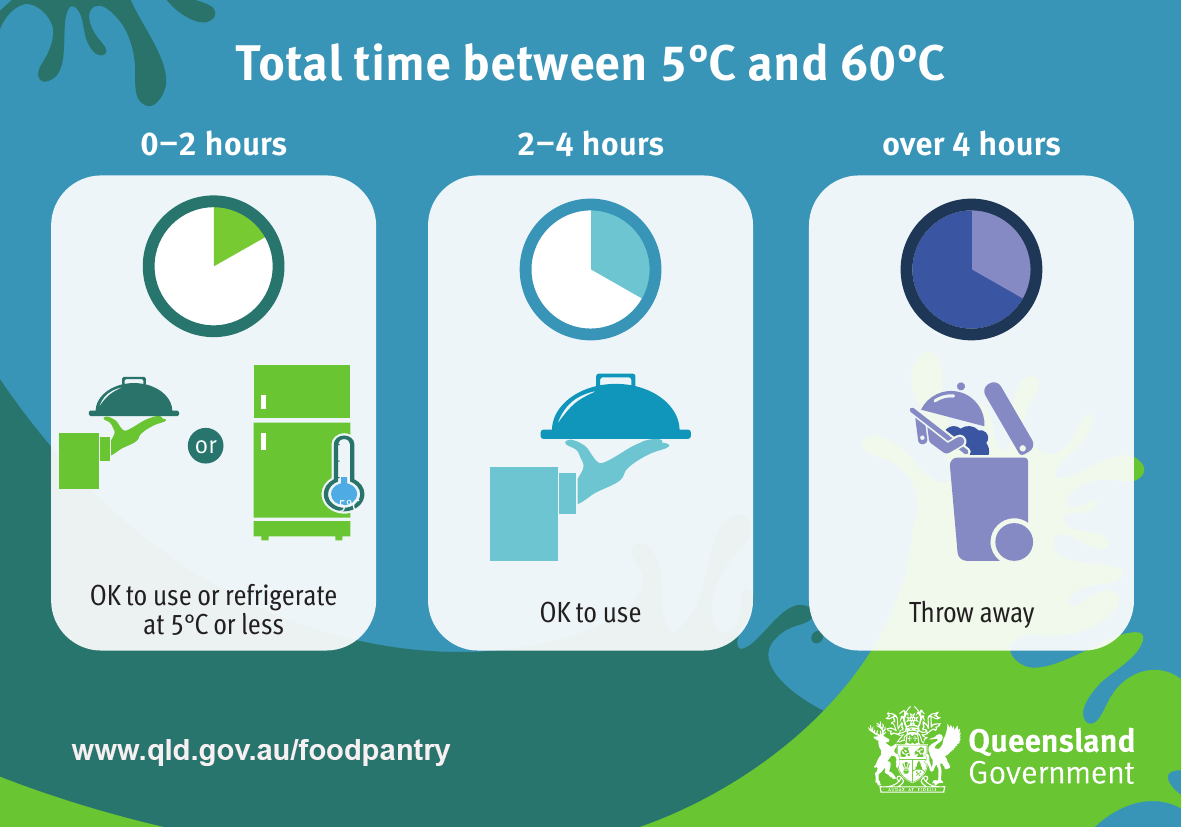Donating food
This page contains information for food businesses and the general public about donating food.
Laws relating to donating food
The Food Act 2006 (the Act) does not stop food businesses or individuals from donating food.
Food can be donated provided it is safe and suitable to consume and it complies with the requirements of the Australia New Zealand Food Standards Code (the Food Standards Code), which includes relevant labelling and compositional requirements.
Irrespective of whether the food is intended to be sold or donated, Queensland food businesses are required to comply with the Act and the Food Standards Code.
Under the Queensland Civil Liability Act 2003, a food donor does not incur any civil liability in donating or distributing food, providing:
- the food was safe to consume at the time it left the food donor’s possession
- the food donor informed the recipient of any special food handling requirements that were required to keep the food safe
- the food donor informed the recipient of any time limits that the food will be safe after it left the food donor’s possession.
Ensuring donated food is safe
The same precautions are required to be taken for donated food as if it were being sold from a food business.
Ensure everyone involved in handling food maintains the highest possible standard of cleanliness and personal hygiene.
Take care when handling, storing, packing and transporting food.
Store food in clean, covered, food-grade containers.
Keep high-risk foods such as meat, seafood, eggs, dairy products and smallgoods, or foods that contain any of these ingredients such as sandwiches, quiches and prepared salads, below 5°C or above 60°C.
Make sure food is collected by, or delivered to, the charity, in the shortest period of time.
Where possible, keep potentially hazardous foods out of the temperature danger zone (between 5°C and 60°C) while being transported.
Comply with the 2 hour/4 hour guide.

Food labels on donated food
Donated food must be fully labelled in accordance with the Food Standards Code, although some exemptions apply to food sold at a fundraising event. Read more about requirements for food labelling.
Expiry dates
Use by dates
Charities are not allowed to distribute food past its ‘use by’ date. Businesses and individuals should also avoid donating food that is close to its ‘use by’ date, as the food may be unsafe to eat after the ‘use by’ date even though spoilage may not be evident.
Best before dates
It is ok to sell or give away food past its ‘best before’ date. There may be some loss of quality in food after its ‘best before’ date but, provided it is otherwise safe to eat, there should not be any safety risk from consuming the food.
Donating food in an emergency situation
The same laws outlined above apply to food donated to an evacuation centre. That is, the food must be safe and suitable to consume and must comply with the requirements of the Food Standards Code, including any relevant labelling and compositional requirements.
The same basic food safety precautions outlined above should also be followed. In addition, fresh or packaged food that is dirty from exposure to floodwater or fire should not be sold or donated. Throw out this food as it may be unsafe.
High-risk foods that are not under temperature control, or where the temperature is unknown, are not likely to be accepted by the evacuation centre.
Food donated by individuals and charitable organisations
Donations of potentially hazardous foods that have been cooked or prepared by individuals are unlikely to be accepted by the evacuation centre.
Infant formula
The World Health Organization International Code of Marketing of Breast-milk Substitutes prohibits the promotion by organisations of products that replace breast milk partially or totally e.g. infant formula, cereals or vegetable mixes. However, donations may be supplied at the request of the emergency evacuation centre to ensure appropriate supplies are available for affected evacuees.


